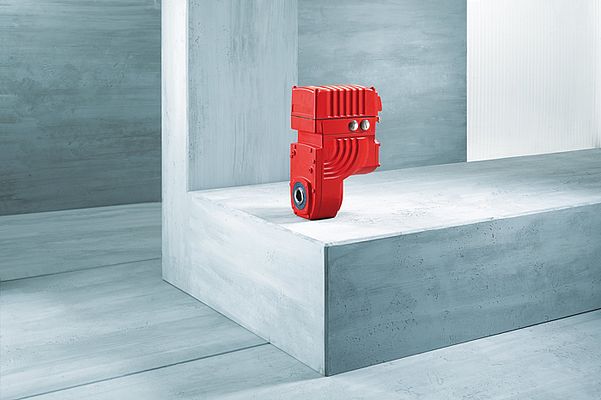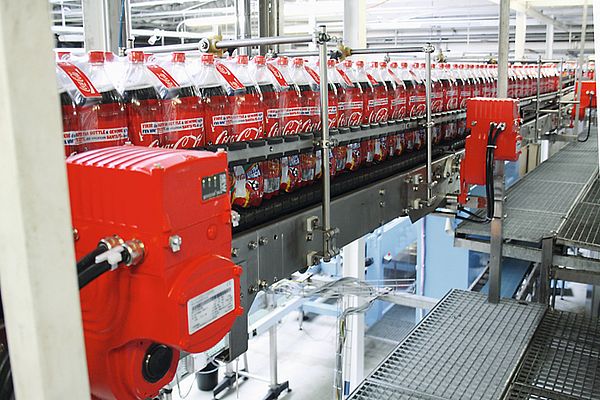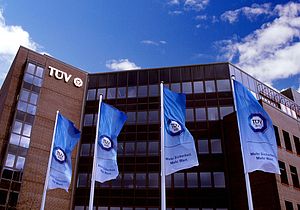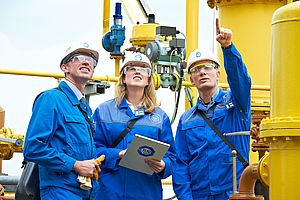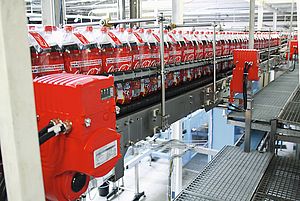Electrical drive systems account for over two-thirds of industrial electricity demand. The numerous drive systems available on the market can differ significantly in terms of energy efficiency, quality, possible applications and system properties. Impartial expertise in assessing the energy efficiency of systems and components is becoming increasingly important.
Energy Efficiency
National and international directives and standards are driving increasingly rigorous demands for energy-efficient systems and components, particularly electrical drive systems. Since June 2011, when the European Commission Regulation on ecodesign requirements for electric motors came into effect, all three-phase asynchronous motors placed on the EU market have had to fulfil the IE2 efficiency levels. Given this, energy efficiency is moving into the forefront as the critical design criterion.
Decision-makers today already give some - albeit not always sufficient - consideration to the aspect of energy efficiency when they plan new investments and retrofit measures. Even though energy costs account for a large share of the total cost of ownership (TCO), the purchase price is still the decisive factor in many purchase decisions. However, higher investments in a demonstrably more energy-efficient drive system can pay off when the accumulated energy costs throughout the service life of the efficient drive components are lower than those of the standard solution. Further advantages include partially lower servicing and maintenance costs, and higher availability.
Case study SEW-Eurodrive
Manufacturers that deliberately set new standards in energy efficiency can now obtain third-party certification to document the energy efficiency of their systems to their customers. The "Energy Efficient System" certificate offered by TÜV SÜD Industrie Service GmbH is one example. Within the scope of the certification process, TÜV SÜD's experts assess the technical components and their subsequent interaction in system operation against specific efficiency criteria - as for example at SEW EURODRIVE, Bruchsal. The company is one of the market leaders in drive automation and commissioned TÜV SÜD to put its mechatronic drive system MOVIGEAR through its paces.
MOVIGEAR combines gear units, motor and frequency converter in a single housing and is used in horizontal material handling applications, such as assembly lines or filling systems in the beverage industry. In addition to the efficiency-optimised parallel shaft helical gear units and the permanent-field synchronous motor, the system includes a frequency converter with new electronic components and an adjusted control mechanism. The certification process was preceded by a comprehensive energy audit comprising in-depth assessments at the manufacturer. The audit not only focused on the energy efficiency of the individual components and their interactions but also analysed specific conditions and modes of operation at various load levels and rotational speeds of the drive system.
Certification criteria and consumption analysis
Within the scope of their energy audit, TÜV SÜD's experts analysed the energy efficiency of the MOVIGEAR mechatronic drive system and compared it against the best available technology (BAT). The TÜV SÜD professionals started by measuring the system's power and energy demand and comparing it to industry-specific benchmarks and indicators. TÜV SÜD's measurements and analyses of the available data examined whether MOVIGEAR offered better overall efficiency than the standard solution. All values were compared with those set forth in the BAT reference documents for motors (Regulation (EC) No. 2009/641). The analysis confirmed that MOVIGEAR operates at an efficiency ratio that significantly outperforms that of the BAT.
TÜV SÜD certification focused in particular on the design and development process. Does the process enable continuous improvement? To answer this question, the energy-efficiency experts assessed the processes of all components and documented the development stages until the best possible energy-efficiency solution was found. Here too, MOVIGEAR fulfils all certification criteria.
Energy report certification
TÜV SÜD not only delivered "Energy-Efficient System" certification for the mechatronic drive system; the technical service provider also reviewed and attested SEW Eurodrive's energy report. The energy report analyses energy consumption and supports the identification of energy-efficient drive systems. The tool, a feature of the SEW Workbench projecting software, is used by both employees and customers of SEW EURODRIVE. The output of this software, i.e. the energy report, supplies the total energy consumption of a specific application and projected drive train and thus forms the basis for choosing the most energy-efficient solution. TÜV SÜD's "Energy Efficient System" certification of the SEW energy report documents that SEW correctly analyses the energy consumption of the individual drive components.
Result and value-added
In practice, MOVIGEAR reduces energy consumption by up to 50 % compared to other commercially available drive systems. These energy savings are due to efficiency-optimised parallel shaft helical gear units that offer better efficiency ratios than worm gear units. The use of a synchronous instead of an asynchronous motor further improves efficiency. In this case, the efficiency ratio of the motor was even better than efficiency level IE 4. Certification of the energy report, which brings transparency to energy demand, energy costs and CO2 emissions, provides additional certainty in deciding on the most energy-efficient drive solution tailored to a specific application.
Third-party assessment and certification enable plant and system manufacturers to document the energy efficiency of their products to the outside world. Energy-efficient technologies and systems offer plant owners the opportunity to improve their competitive strength and demonstrate to their clients that they are committed to sustainable operations.
| TÜV SÜD "Energy-Efficient System" certification comprises: |
E-mail: energieeffizienz@tuev-sued.de |
By Dr Maria D. Alonso Craus, Energy Systems, TÜV SÜD Industrie Service GmbH, Dresden Office


